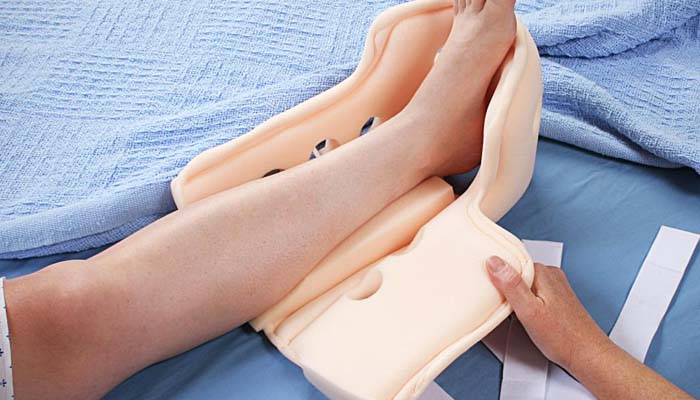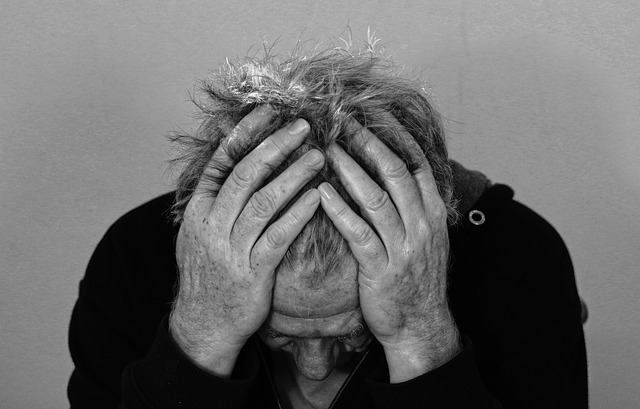
Age can bring about some challenges with our health. Many of our normal physiological processes can slow down, which causes us problems. The healthcare industry has long documented that the older we get, the more issues we will have with our digestive systems.
It is true these problems can happen when we are younger but, unfortunately, almost 50 percent of older adults have digestive symptoms that we can relate to the passing years. Our physical health changes as we age, but poor diet, unbalanced gastrointestinal flora and fewer digestive enzymes can adversely impact our digestive and immune systems.
What problems can occur?
-
Constipation
A very common problem is constipation, which causes painful or infrequent bowel movements. Your digestive tract slowing down is the root of this problem.
Digestion works by muscular contractions that propel the food along the tract. Aging causes these muscular contractions to be weaker and slower so the food will spend more time in the intestines. Food in the intestines has water absorbed by the bowel wall. The longer the food stays in the intestines, the more water passes through the bowel into the circulation. This causes the stool to be much drier, firmer and, therefore, more difficult to pass.
-
Medicine
Medication use increases with age due to aches and pains and other health issues. Some medication causes constipation such as those prescribed for high blood pressure. This calcium channel blocker causes constipation in a large percentage of its users.
Patients who have undergone surgery–for example, a hip replacement–find their doctor will frequently prescribe narcotics to help with the pain. This class of drug slows down the movement of the intestines that in turn leads to constipation.
-
Activity level
Even the most active of adults can find their activity level slows down as they age. Health problems or surgery can mean you are laid up in bed for weeks or even months. Bones and joints are more brittle so you might not be as keen or as able to go on long walks or participate in activities such as gardening.
Our gut relies on our movement to help with the passage of food. If we are recovering from an injury and are unable to move, our gut is not as efficient at digestion. Once again, this leads to constipation. Using painkillers will further compound this.
-
Hydration
It is very important to your gut health to drink enough water. Doctors recommend that people should drink eight 8-ounce glasses of water a day, which is 64 ounces each day. That can be in the form of tea, fruit juice or other beverages. However, people’s daily water requirements differ based on their age, gender, activity level, health conditions, and multiple other factors. Men typically require more water then women and active adults are also recommended to drink more water.
The important thing is to find the right balance of water intake for you so you can keep hydrated throughout the day. Hydration is important because it keeps your organs functioning properly, on top of a slew of other benefits such as joint lubrication, healthy skin, regulating body temperature, and so much more. So, if you are concerned about your gut health, just remember that more water equals less constipation!
People who are bed bound might avoid drinking too much as they are concerned with having to use the bathroom frequently, or they may not be in a position to go without assistance. However, this is very unsafe and should not be a reason for drinking less water. People with certain health conditions still require a healthy amount of water intake under the supervision of their doctor.
Another problem comes with certain medications. Diuretics are a class of drugs that help to lower blood pressure in patients who suffer from elevated blood pressure or heart failure. They cause the body to lose any excess fluids. This can lead to dehydration, especially if you are trying to drink less to avoid repeated bathroom visits.
-
Intestinal conditions
A number of health issues that occur in the gut increase as we age. These include:
- The muscle along the digestive tract weakens with age. Pouches of weak gut lining appear in the bowel wall and can become inflamed and infected. This causes cramps, fever and vomiting. On occasion, diverticular bleeding may occur if any of the small blood vessels located within the wall f the pouch burst. Treatment is antibiotics, pain medication and a diet of liquids only until it resolves.
- Prolonged use of painkillers from the nonsteroidal anti-inflammatory drugs (NSAIDs) family can cause stomach bleeding and ulcers. A peptic (stomach) ulcer is a sore in the lining of stomach, duodenum, and on rare occasion, the esophagus. They can lead to other problems, such as bleeding from a broken blood vessel, perforation oft he stomach or small intestine, a stomach blockage, and even peritonitis.
- These small lumps grow on the colon. They can be benign or cancerous. Sometimes the only way to find out if you have them is to have a screening colonoscopy. However, to lower risks of developing a polyp, research suggests that certain diet changes may play a role.
- Gastroesophageal reflux disease, more commonly known as GERD, becomes more common as we age. Stomach acid leaves the stomach, travels some way into the esophagus and causes what we call heartburn. Risk factors for developing GERD are age, blood pressure medication and obesity. Certain diet choices can lessen the effects of GERD, but it can be painful and difficult to manage without some form of medication, such as an H2 blocker or proton pump inhibitor.
-
Difficulty swallowing.
Certain health conditions such as Parkinson’s disease, dementia and sufferers of a stroke can find they have more difficulty swallowing. The normal aging process also slows our ability to swallow. A recent study by John Hopkins University estimated that a quarter of all adults will develop a swallowing related issue as they grow older.
How can I protect my digestive health?
As with everything in life, prevention is far better than cure. The best thing you can do to protect your digestive health is to try to maintain a healthy gut before any problems begin to show.
-
Healthy diet.
A healthy gut requires a healthy diet. It is important you absorb the most amount of nutrients as you can from your food. There are a wide range of nutritional enzymes and probiotics available on the market that can help our digestion, even if our appetite is not as good as it used to be! Enzymes and probiotics are essential for overall digestive wellness and efficiency, especially as we age.
Every time a meal is ingested, the body needs a supply of digestive enzymes to unlock the nutrients within the food. Probiotics improve digestion by nourishing intestinal cells and also have a beneficial effect on nutrient absorption. In addition to being diligent about taking enzyme and probiotic supplements, don’t forget to eat plenty of foods high in fiber to help avoid constipation and diverticulitis.
-
Review your medication.
Regular reviews with your doctor mean you are only taking the medication that you absolutely need.
Ask your doctor about alternatives to your medication. There are fibrinolytic enzymes that can help people suffering from heart conditions and that do not have side effects like many prescription medications.
-
Health Screening.
Some conditions such as colon polyps might not show any symptoms at all. Therefore, the best way to stay healthy is to have yourself regularly checked for anything that may cause problems later on. A regular health screening with a healthcare professional will give you the answers and reassurance you need as well as any recommendations for a healthier gut and lifestyle.
-
Stay hydrated.
It is important there is enough liquid in your gut to move the digestive process along. Drink at least two litters of liquid every day and vary it depending on your activity levels. This amount might increase with medication use, gender, age, and a few other factors. You can ask your doctor or healthcare provider for a personalized water intake suggestion that will be the optimal amount to keep you hydrated and your organs functioning properly all day long. A hydrated digestive system is a healthy one!
-
Keep active.
Try to go for a walk or enjoy some form of activity every day, like weightlifting, cardio, and stretching. Doctors recommend at least half an hour daily. This keeps you supple and fit and helps with digestion and avoiding constipation. Some great options for older adults are yoga, golf, tennis that work to both stretch and tone muscle groups while steadily increasing your heart rate.
-
Maintain a healthy weight.
Heart conditions and high blood pressure increase with weight. The fewer health issues you have, the less medication you will need so you do not have to worry about their side effects. Maintain a healthy diet with a healthy gut to help support your digestive system and your overall health. To find the right diet plan for your weight goals, always consult your doctor or a certified dietitian before making any dramatic changes to your daily eating regimen.






